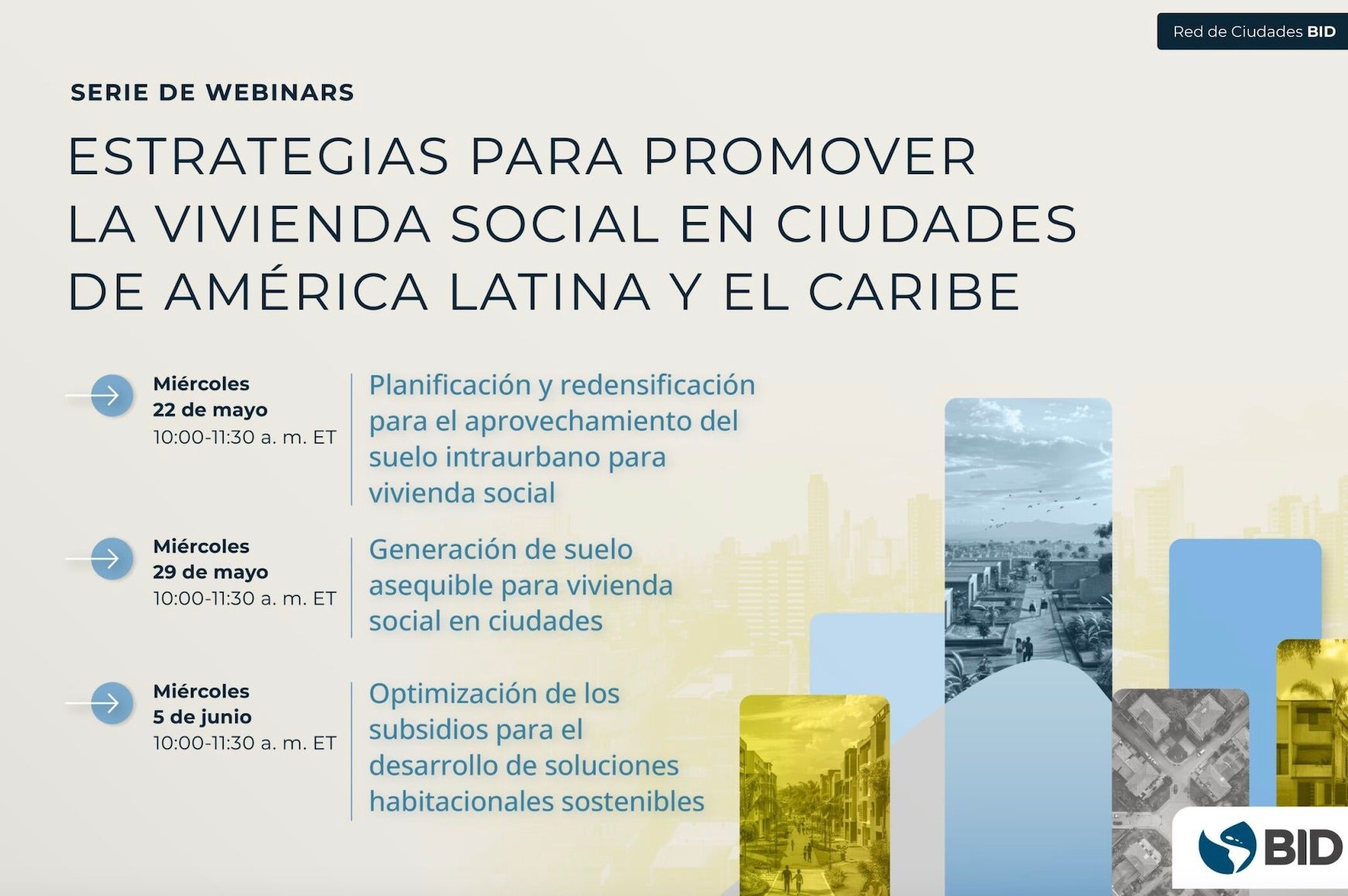Este artículo está también disponible en / This post is also available in: Spanish
Latin America and the Caribbean (LAC) face a significant challenge in addressing social exclusion in urban environments. It is estimated that at least 105 million people in LAC currently live in informal settlements (World Bank, 2020), where one-third of households belong to the lowest income quintile. These neighborhoods are characterized by a lack of basic services and extreme vulnerability to endemic diseases.
The magnitude of the challenge is enormous, with housing deficits in LAC affecting 55 million households, representing nearly 45% of its total population (Bouillon, 2012). Despite gradual progress, it is projected that it will take over 30 years to close this housing gap (Libertun, 2020). Factors such as the quasi-inelastic supply of land with services, housing policies that prioritize low-demand solutions, and inadequate development of mortgage markets contribute to this issue.
Through the series of webinars ” Strategies to Promote Social Housing in Latin American and Caribbean Cities” by the IDB Cities Network, we are addressing key strategies to advance planning for densification, creation of land banks, and optimization of subsidies for social housing in cities.
We invite you to learn more about each webinar below.
Webinar 1: Planning and Densification for Social Housing on Intra-Urban Land – May 22, 2024
Each new square meter of urban land necessitates increased public investment to maintain the new infrastructure created. Conversely, densifying within the consolidated city leverages existing infrastructure. These and other benefits are crucial when utilizing intra-urban land for social housing.
Based on the first webinar’s discussion, successfully densifying with social housing primarily requires:
- Leadership from local governments to create land-use plans with urban conditions that facilitate the availability of existing land for social housing.
- Involvement from national governments, including the consideration of planning and land policy issues in national legislation and policy, along with governmental support for managing subsidies targeted at low-income populations.
- Encouragement of private sector participation in urban densification, though through measures such as increased taxes on vacant land or the establishment of deadlines for project development.
Similarly, the main tools available to municipalities for promoting social housing within existing urban areas include:
- Implementing land use regulations to encourage social housing and compact cities, such as providing incentives in land-use plans for social housing in central areas and strategically controlling density increases.
- Integrating comprehensive planning that includes social housing in mobility projects like trams, metros, and rapid bus transit systems, along with the provision of services and facilities in urban extension areas.
- Allocating well-located public land for social housing and utilizing vacant urban land by identifying and cataloging vacant lots, offering tax incentives, and simplifying procedures for social housing projects.
We invite you to watch the recording of the event and learn about the cases of cities in Panama and Guatemala at the following link:
Webinar 2: Facilitating Accessible Land for Urban Social Housing Initiatives– May 29, 2024
How can we generate affordable land to promote social housing in consolidated urban areas? The creation of land banks for social housing presents an attractive alternative. Land banks are land management instruments through which parcels are identified and managed for social housing projects, aiming to regulate land price increases through state land offerings made counter-cyclically.
According to the second webinar’s discussion, key aspects for generating land banks include:
- Innovation in land development and management, through public land operators, innovative public-private partnerships, and inclusive governance models, among others.
- Prioritizing strategic mobilization and administration of assets, promoting their reuse, and ensuring adequate regulations for efficient management.
- Effective coordination, strong public leadership, and transparent operational management are crucial to overcoming management challenges and centralizing information for the utilization of existing public land for social housing.
- Consolidation of a clear vision and coordinated management to achieve effective public-private partnerships and efficient utilization of policies, regulations, and subsidies.
We invite you to watch the recording of the event and learn from the cases of cities in Costa Rica and Ecuador in the following video:
Webinar 3: Optimizing Subsidies to Foster Sustainable Housing Solutions – June 5, 2024
The third and final webinar explored subsidies to ensure efficient and equitable allocation of resources, promoting the construction of housing that meets minimum standards of habitability, energy efficiency, and accessibility. The session focused on subsidy models that encourage various housing solutions, such as well-located new homes, housing improvements, housing adaptation, rental housing, and well-targeted subsidies. Subsidy models from Mexico and Chile were presented, aiming to promote the diversification of housing solutions and ensure their allocation to vulnerable groups.


Leave a Reply